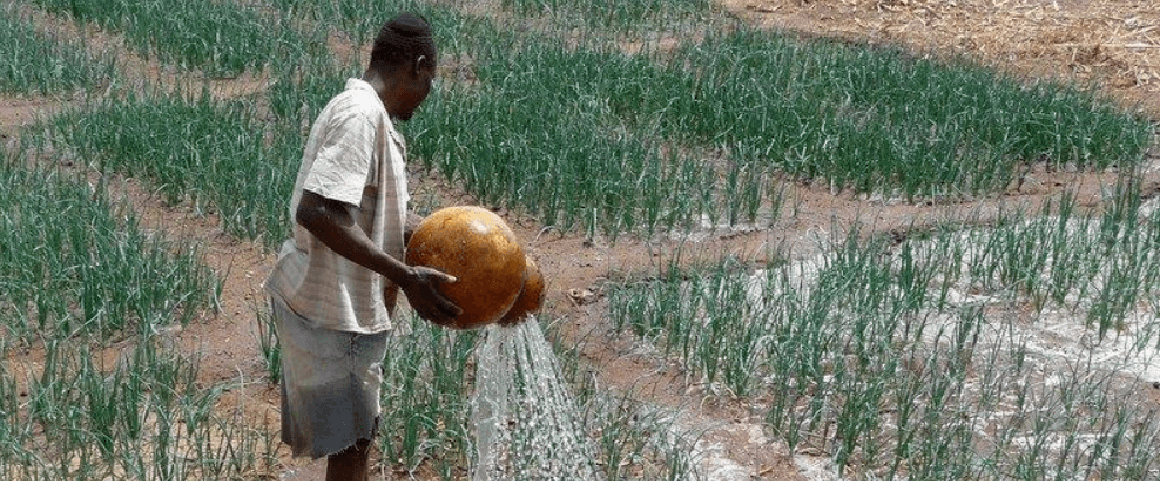- Home
- Worldwide
- CIRAD worldwide
- Projects
- IRRINN project
Intensifying agricultural production by scaling up innovative and adapted irrigation practices and technologies - IRRINN

Manual irrigation with a calabash © J. Lemoalle, IRD
Issues
Rainfed crops account for 98% of agricultural land in Burkina Faso, hence the importance of ponds, which enable farmers to have a small water reservoir in their plots so they can irrigate during dry spells in the rainy season. Since 2012, with the support of the State and NGOs, a thousand ponds have been excavated, but with varying degrees of success, because after the research and development phase deployment has encountered some technical obstacles. “Small-scale private irrigation is also booming around the 1,500 dams in Burkina Faso. However, some wells are deteriorating and most farmers draw water and irrigate manually. The goal of the IRRINN project is therefore to co-develop irrigation solutions and ensure long-term development of small-scale irrigation.
Description
On a technical level, the project will work to waterproof ponds, design new wells, compare different pumps — treadle, petrol, solar, etc. — study the types of crops adapted to ponds, and the water balance. Several approaches will be assessed at seven sites around Ouagadougou.
Emphasis will also be placed on funding, with the identification of innovative processes and tools that could be based on information and communication technologies - ICTs. For example, it might be possible to use mobile phones to make loan repayments remotely. Lastly, novel and participatory intervention methods, i.e., where farmers are co-developers, will be tested.
The approach is therefore multidisciplinary and includes agronomists, hydrologists, agricultural engineers, economists and sociologists. The political, economic and social partners involved in the project will meet via multi-stakeholder platforms.
Expected changes
Three types of results are expected by the end of the four years of the project:
- Knowledge produced and intervention strategies developed that contribute to the institutionalization and scaling-up of irrigation solutions;
- Efficient models adapted to the diversity of situations and providing a frame of reference for the deployment of irrigation solutions;
- Development of participation, and of innovation support services (ISS) fostering learning and building the capacities of individuals and organizations to innovate.
There are also plans to propose guides to enable the State and NGOs to co-develop small-scale irrigation innovations with farmers.
The objective of the DeSIRA initiative (Development Smart Innovation through Research in Agriculture, is to contribute to climate-relevant, productive and sustainable transformation of agriculture and food systems in low and middle-income countries.
Learn more
























